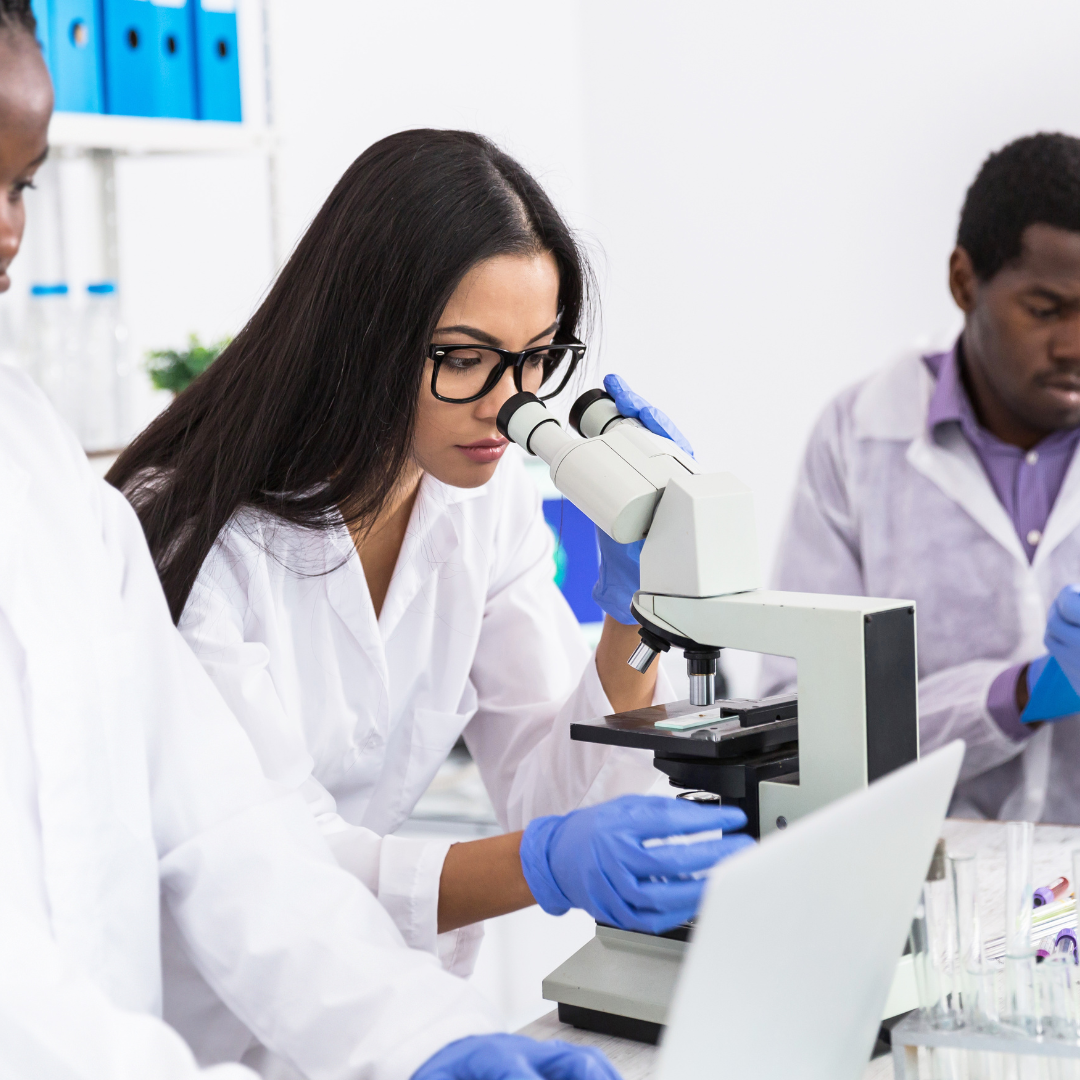
 MICROBIOLOGIST: A microbiologist is a scientific professional who studies microorganisms like bacteria, fungi, and other tiny lifeforms. Microbiologists play a vital role in pharmaceutical and medical device manufacturing. They test and monitor levels of microbial contamination at all stages of the manufacturing process. Because any contamination of a medical device or drug product can be dangerous, microbiologists must test equipment, ingredients, the end product, and other materials. They must be able to calibrate equipment, read and analyze data, keep detailed records and grow cultured organisms.
MICROBIOLOGIST: A microbiologist is a scientific professional who studies microorganisms like bacteria, fungi, and other tiny lifeforms. Microbiologists play a vital role in pharmaceutical and medical device manufacturing. They test and monitor levels of microbial contamination at all stages of the manufacturing process. Because any contamination of a medical device or drug product can be dangerous, microbiologists must test equipment, ingredients, the end product, and other materials. They must be able to calibrate equipment, read and analyze data, keep detailed records and grow cultured organisms.
Did you know?
BIO TECHNOLOGY: Biotechnology degrees will prepare students to enter the field of research, education, pharmaceuticals, forensics, and a variety of other careers. Biomedical Science aims to use the vast and ever-progressing fields of biology to improve human health and the treatment of disease. It encompasses the general fields of human anatomy, physiology, genetics, cell biology, and molecular biology, as well as more specialized disciplines such as neuroscience, immunology, histology, developmental biology, and pathophysiology, among others. A degree in Biomedical Science helps to prepare students for several careers within healthcare, as well as a solid foundation for other graduate-level work. These include preparation for medical school, dental school, and a wide variety of other graduate school options. In addition, students who are not interested in pursuing a graduate degree could work for medical labs, research labs, hospitals, biotech companies, and pharmaceutical companies following graduation with a BS in Biomedical Science.

Microbiologists typically need a bachelor's degree in microbiology or a related field for entry-level jobs. However, to work in research, or in a college or university, they would need to complete a master's degree and possibly a Doctorate Degree. College courses in this degree include biology, Ecology, Microbiology, Chemistry, and Math.
Bio Technicians need a bachelor's degree in biology or a related field, like physical science or natural resources. Some jobs are also available to bio technicians who have less education than a bachelor's degree but have extensive laboratory experience and an associate's degree. Many employers also require an internship in a working lab to gain hands-on experience.
Biochemists and biophysicists must have a bachelor's degree in biochemistry or a related field, such as biology, physical science, or engineering. Students in these programs can expect to take courses in math and physics in addition to courses in biological and chemical sciences.
Biochemists need a Ph.D. to work in independent research and development positions. Bachelor’s and master’s degree holders are qualified for some entry-level positions in biochemistry and biophysics. Students also can gain valuable laboratory experience through internships with prospective employers such as pharmaceutical and medicine manufacturers. Ph.D. programs usually include two years of advanced coursework in topics such as toxicology, genetics, and proteomics (the study of proteins). Many Ph.D. graduates start their careers in research positions.
Utah Earning Potential Averages For Microbiologists: (Jobs.Utah.Gov)
| Annual Total Openings: | 10 |
|---|---|
| Annual Growth Rate: | 2.76% |
| Median Annual Wage: | $79,260 |
| Inexperienced Annual Wage: | $46,700 |
| Education: | Bachelor's Degree |
Utah Earning Potential Averages For Bio Technicians: (Jobs.Utah.Gov)
| Annual Total Openings: | 30 |
|---|---|
| Annual Growth Rate: | 9% |
| Median Annual Wage: | $48,140 |
| Inexperienced Annual Wage: | $37,660 |
| Education: | Bachelor's Degree. |
Utah Earning Potential Averages For Biochemist/Biophysicist: (Jobs.Utah.Gov)
| Annual Total Openings: | 100 |
|---|---|
| Annual Growth Rate: | 2.86% |
| Median Annual Wage: | $77,560 |
| Inexperienced Annual Wage: | $48,550 |
| Education: | Doctoral/Professional Degree |


